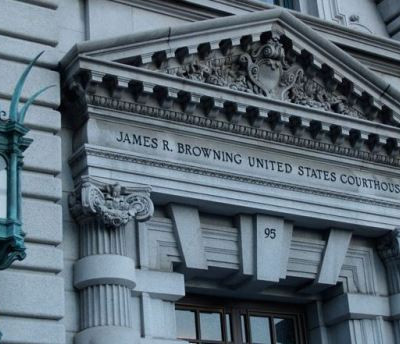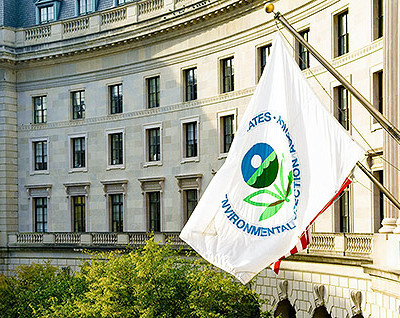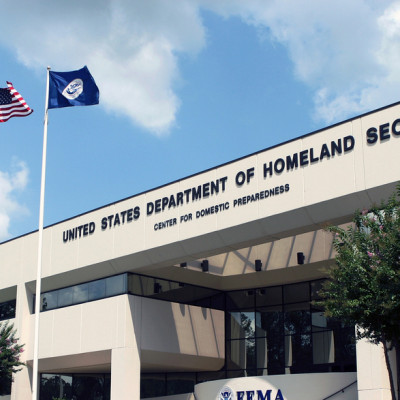January 31, 2020
January 2020 at Policy Integrity
- Litigation on Lead Toxicity, New Jersey Zero Emission Certificates
- Carbon Pricing Conference on March 3rd
- Revesz’s Brief in the Supreme Court
- An Attack on a Bedrock Environmental Law
- EPA Science Advisory Board Input
- Trump Administration’s Harmful “Public Charge” Rule
- Condon to Join Boston University Law Faculty
- More From This Month
-

Litigation on Lead Toxicity, New Jersey Zero Emission Certificates
A new Environmental Protection Agency rule sets weak standards for lead dust contamination on floors and windows. Despite acknowledging that any level of lead exposure represents a health risk, the agency forgoes stricter, more net-beneficial regulations. We filed a brief in the U.S. Court of Appeals for the Ninth Circuit in support of petitioners challenging the rule.
We also filed a brief in a New Jersey appeals court on the state’s Zero Emission Certificates program, which compensates nuclear power plants for the value of avoiding energy-sector carbon emissions. Our brief addresses the proper use of the Social Cost of Carbon and explains that the program should value avoided carbon emissions both inside and outside of New Jersey.
-

Carbon Pricing Conference on March 3rd
Putting a price on carbon dioxide emissions is one of the most promising strategies for achieving climate goals. Together with Duke University’s Nicholas Institute for Environmental Policy Solutions, we are hosting a conference in Washington, D.C., on Tuesday, March 3rd that will focus on carbon pricing in wholesale energy markets. To learn more about the conference, see the speaker lineup, and RSVP, visit our event page.
-
Revesz’s Brief in the Supreme Court
The Supreme Court is currently reviewing a Trump administration-backed challenge to the constitutionality of the Consumer Financial Protection Bureau, a case that could have significant implications for presidential power over independent government agencies. Richard Revesz authored an amicus brief, on behalf of administrative law scholars, defending the structure of the CFPB. The brief argues that the constitutional distinctions made by the government between independent agencies with a single head and multi-member agencies are inconsistent with the structure of the administrative state.
-

An Attack on a Bedrock Environmental Law
The Trump administration proposed significant changes to the National Environmental Policy Act, a 50-year-old statute requiring government agencies to assess the environmental consequences of infrastructure and energy projects. Jayni Hein’s op-ed in the San Francisco Chronicle details how the NEPA rollback is a dangerous effort to prevent agencies from analyzing and publicizing climate impacts. Richard Revesz spoke with The New York Times, explaining that the changes likely won’t hold up in court and may even result in longer delays for projects—the opposite of what the Trump administration is seeking to accomplish.
-

EPA Science Advisory Board Input
Recently, the EPA’s Science Advisory Board met to discuss four controversial rule proposals and their underlying analyses. We provided extensive input, submitting comments on the EPA’s changes to auto emissions standards, Mercury and Air Toxics standards, the scope of waters regulated under the Clean Water Act, and the proposed Science Transparency Rule.
-

Trump Administration’s Harmful “Public Charge” Rule
Last week, the Supreme Court allowed the Trump administration to begin enforcing its “Public Charge” rule, which seeks to deny lawful permanent residency to immigrants who have participated in public assistance programs like Medicaid, the Supplemental Nutrition Assistance Program, and the Section 8 housing voucher program. Lower courts are still reviewing legal challenges to the rule, however. We filed briefs in three federal appeals courts detailing the administration’s failure to (1) consider the substantial social costs that the rule would impose by encouraging large-scale disenrollment from public assistance programs, and (2) identify any significant benefits from the rule.
-
Condon to Join Boston University Law Faculty
This fall, Policy Integrity Attorney Madison Condon will start in her new position as an Associate Professor at Boston University School of Law, where she will be teaching classes on environmental law, corporate law, and climate change-related financial risks. Condon has been part of Policy Integrity since 2017, playing an integral role in our advocacy, research, and legal engagement. She joins Michael Livermore (University of Virginia) and Caroline Cecot (George Mason University) in the ranks of Policy Integrity staff members who went on to full-time academic positions on law school faculties.
-
More From This Month
We also submitted comments on:

